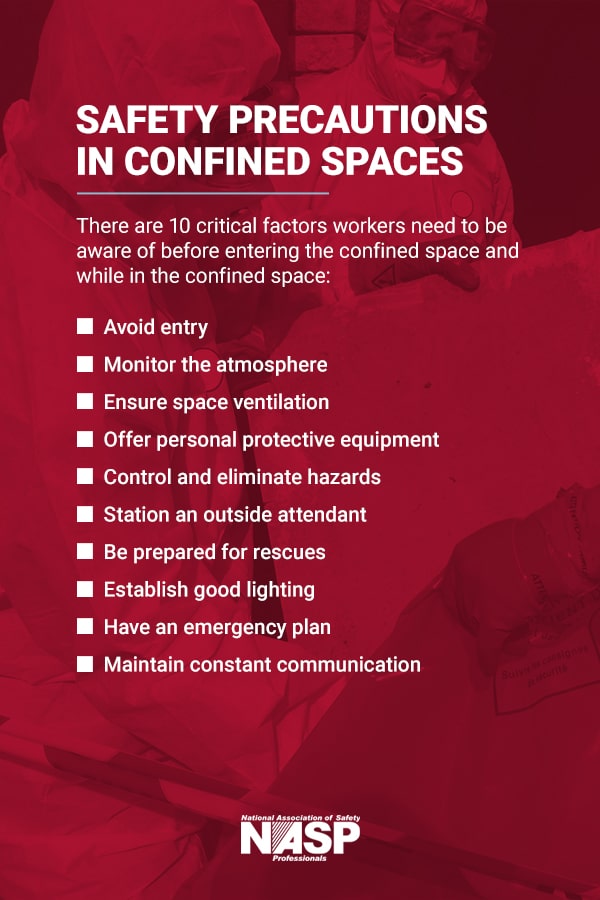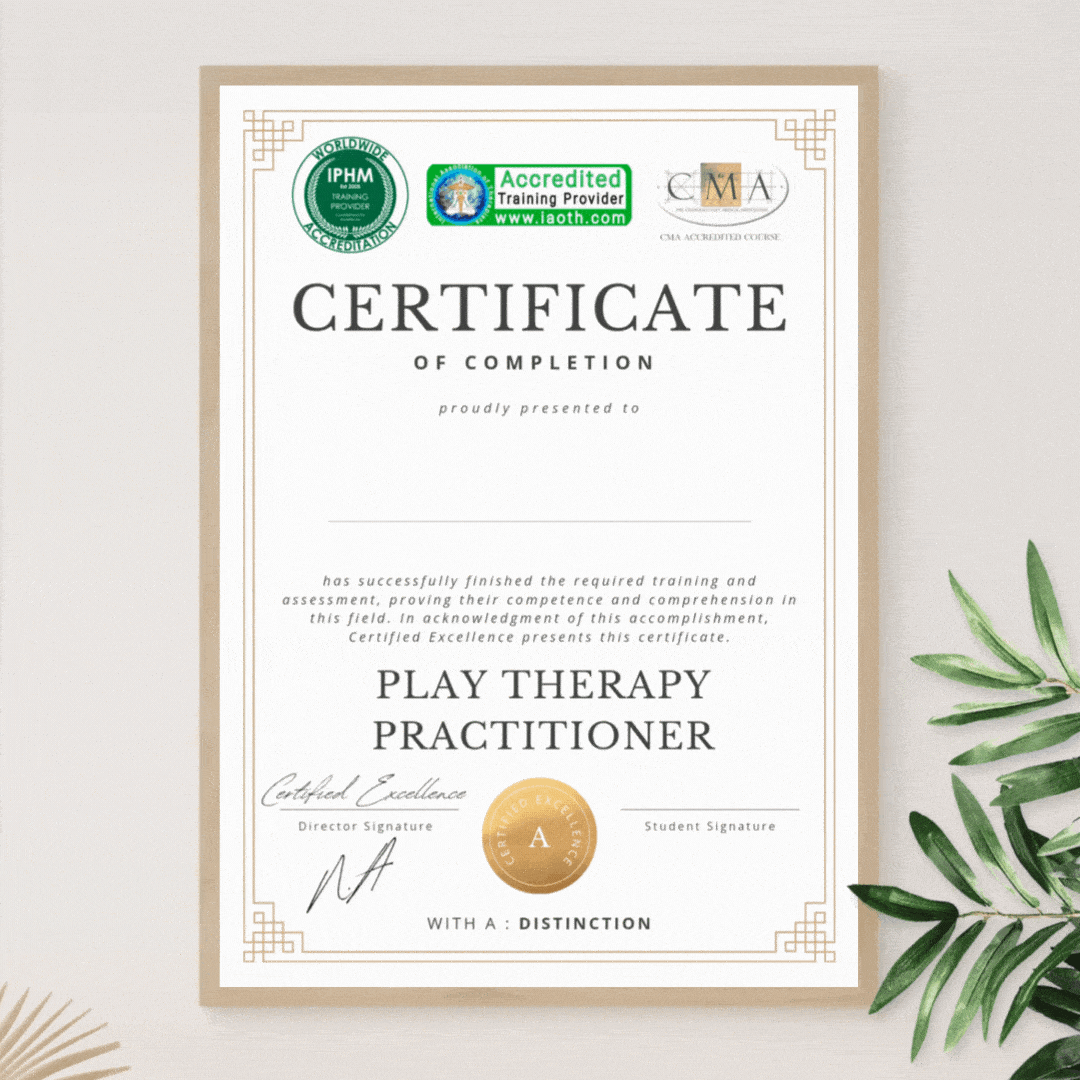How to Become a Working in Confined Spaces: Essential Guide
Are you ready to explore a unique and rewarding career path? Working in confined spaces may seem challenging, but with the right skills and knowledge, it can be a fulfilling and lucrative profession.
Imagine stepping into environments where few dare to go, mastering the art of safety and precision while making a real impact. In this guide, you’ll discover the essential steps to becoming a pro in working in confined spaces. Whether you’re looking to switch careers or enhance your current skills, this article will provide the insights you need to succeed.
Get ready to unlock the secrets of this fascinating field and take your career to new heights. Keep reading to find out how you can make this exciting transition!
Understanding Confined Spaces
Understanding confined spaces involves knowing how to work safely in them. These areas are small and may pose dangers. Training focuses on safety measures and equipment use to ensure protection while working.
Understanding confined spaces is crucial for those working in certain environments. These spaces can pose significant risks if not properly managed. They often have limited entry and exit points, making them potentially hazardous. Familiarizing yourself with their characteristics is the first step toward safe working practices.
Definition And Characteristics
Confined spaces are areas not designed for continuous occupancy. They have limited entry and exit points. These spaces may have poor ventilation, leading to hazardous conditions. Workers often face risks like toxic gases or lack of oxygen. Understanding these characteristics helps in identifying potential dangers. Training and preparation are key to ensuring safety.
Common Examples In Various Industries
Many industries have confined spaces that require special attention. In construction, workers might enter tanks or vaults. These areas often have restricted airflow. The agriculture sector includes silos and grain bins. These can be dangerous due to dust and gases. In the shipping industry, cargo holds and ballast tanks are common confined spaces. These areas require careful monitoring and safety measures. Recognizing these examples helps workers prepare and protect themselves.
Necessary Skills And Qualifications
Working in confined spaces demands specific skills and qualifications. Essential abilities include attention to detail, problem-solving, and effective communication. Necessary certifications often involve safety training, understanding of regulations, and emergency response preparedness.
Embarking on a career that involves working in confined spaces is both challenging and rewarding. You’ll need a specific set of skills and qualifications to ensure safety and efficiency in such environments. These skills are not just about ticking off boxes but about equipping yourself to handle unique situations. Whether it’s navigating tight spaces or ensuring you’re prepared for emergencies, your qualifications and attributes will play a crucial role. Let’s dive into what you need to become proficient in this field.
Required Certifications
Certifications are your passport to working safely in confined spaces. They demonstrate your knowledge and commitment to safety standards. You’ll need a Confined Space Entry certification. This is typically a short course that covers the essentials like hazard identification and emergency procedures. Most employers also require CPR and first aid certification. Imagine the peace of mind knowing you’re prepared to handle medical emergencies on-site. Think about whether you’d benefit from additional training like gas monitoring. It’s a step further in ensuring safety for you and your team.
Physical And Mental Attributes
Physical fitness is essential. You must be able to move easily in tight areas and have the stamina to work in demanding conditions. Mental resilience is just as crucial. Confined spaces can be mentally taxing, requiring you to stay calm and focused. Consider your problem-solving skills. In cramped environments, quick thinking can be the difference between a smooth operation and a risky situation. Imagine having the ability to anticipate challenges before they arise. It’s about being proactive, not reactive, in ensuring safety. Ask yourself if you’re ready to commit to ongoing learning. Your physical and mental capabilities need regular updates just like your certifications. Are you prepared for the unexpected? Working in confined spaces means dealing with surprises. Your skills and qualifications need to equip you to handle them effectively.
Safety Protocols And Regulations
Entering the field of working in confined spaces requires strict adherence to safety protocols and regulations. Proper training and equipment ensure the safety of workers in these challenging environments. Awareness and compliance help prevent accidents and maintain a safe workspace.
Safety protocols and regulations are critical for working in confined spaces. These environments pose unique risks that demand strict adherence to safety measures. Understanding these protocols can prevent accidents and ensure a safe working atmosphere. Below, explore key guidelines and requirements for safety in confined spaces.
Osha Guidelines
The Occupational Safety and Health Administration (OSHA) provides crucial guidelines for confined spaces. Their regulations define what constitutes a confined space. A place with limited entry and exit. OSHA mandates proper training for workers. They must understand the hazards they may face. Employers should implement a permit system. This ensures that only qualified personnel enter the confined space. Regular monitoring of air quality is required. It helps detect dangerous gases early.
Emergency Procedures
Emergency procedures are vital in confined spaces. Workers must be prepared for potential incidents. It is crucial to have a clear plan. Quick evacuation routes need to be established. Communication systems should be reliable and efficient. This allows workers to alert others in case of emergencies. Regular drills can enhance readiness. They ensure everyone knows what to do in a crisis. Proper signage should mark exits clearly. This reduces confusion during an emergency.
Personal Protective Equipment
Personal protective equipment (PPE) is essential for safety. Workers must wear appropriate gear to protect themselves. Helmets guard against falling debris. Gloves and boots protect hands and feet. Respiratory masks are critical. They prevent inhalation of harmful substances. PPE must be well-maintained and checked regularly. Ensure all equipment fits properly. This maximizes its effectiveness in protecting workers.

Training And Education
Training and education are crucial for working in confined spaces. Safety is paramount. Proper training ensures you know the risks. It equips you with the skills needed to navigate these environments. Understanding the importance of comprehensive training can make a huge difference in your career.
Choosing The Right Course
Start with the right course. Research accredited programs. Look for courses that cover safety protocols. Ensure they include emergency procedures. Verify the instructors are experienced. You want experts who understand the field. Compare course content. Check if they offer certification. A recognized certification boosts your credibility.
Hands-on Experience Importance
Hands-on experience is vital. Theory alone won’t suffice. Real-world practice builds confidence. It helps you apply knowledge effectively. Look for courses that offer practical training. Simulated environments are useful. They prepare you for real scenarios. Handling equipment firsthand is crucial. It enhances your skill set.
Tools And Equipment
When working in confined spaces, the right tools and equipment are crucial for safety and efficiency. Without them, the risks increase dramatically. Knowing what gear to choose and how to maintain it can make all the difference.
Essential Gear For Safety
Safety gear is your first line of defense. Always wear a hard hat and sturdy boots to protect yourself from falling objects or slippery surfaces. A reliable harness can prevent falls and keep you secure.
Breathing apparatus is vital, especially in areas with poor ventilation. It ensures you have a clean air supply. Think about how crucial breathing freely is; it’s something you don’t want to compromise.
Invest in a good communication device. When you’re out of sight, staying in touch with your team can be a lifesaver. Imagine calling for help and not being heard—it’s a scenario you never want to face.
Maintenance And Inspection
Regular maintenance of your gear is non-negotiable. Check your equipment for wear and tear before every use. A small crack in your helmet could lead to big trouble.
Perform inspections routinely. Document any issues and address them immediately. This practice ensures your equipment is always in top condition.
Schedule professional inspections periodically. Sometimes, an expert eye catches things you might miss. Wouldn’t you rather find a fault before it becomes a problem?
Remember, your tools can only protect you if they’re in good shape. Keep them clean, store them properly, and treat them with care. Your life depends on it.
By focusing on the tools and equipment, you can work confidently and safely in confined spaces. How do you prioritize the maintenance of your gear?
Risk Assessment And Management
Working in confined spaces can be daunting, but understanding risk assessment and management is crucial for your safety and success. Imagine climbing into a narrow, dimly lit tunnel where every move counts. To work effectively in such environments, you need to anticipate risks and manage them smartly.
Identifying Potential Hazards
Start by spotting hazards that could pose a threat. These might include poor ventilation, toxic gases, or even slippery surfaces. Think about a time you slipped on a wet floor; now imagine the stakes when you’re underground.
Consider the physical space. Is there enough room to move freely, or are you cramped? Pay attention to the temperature and noise levels, as they can affect your concentration and health.
Invite your team to contribute. They might notice risks you overlooked. Sharing experiences leads to a comprehensive understanding of potential dangers.
Implementing Control Measures
Once hazards are identified, it’s time to act. Use personal protective equipment like helmets and masks. These tools are your first line of defense against unforeseen dangers.
Ensure proper ventilation. Use fans or other devices to maintain air quality. Remember, breathing clean air is non-negotiable.
Establish clear communication methods. Whether it’s hand signals or radios, staying connected prevents missteps. Imagine the relief of hearing a colleague’s voice guiding you back to safety.
Regularly review your control measures. Ask yourself: Are they effective? Encourage feedback and adapt your strategies as needed.
Effective risk management is about preparation and adaptability. Are you ready to take control of your safety in confined spaces?
Communication And Teamwork
Communication and teamwork are crucial for anyone working in confined spaces. These environments are often challenging and potentially dangerous, making clear communication and strong team dynamics essential. How well a team communicates can make the difference between a safe operation and a hazardous situation.
Role Of A Confined Space Entry Team
Every confined space entry team has specific roles that must be clearly understood. The team typically includes a supervisor, entrant, and attendant. Each member has distinct responsibilities that contribute to the overall safety.
The supervisor oversees operations and ensures that all safety protocols are followed. The entrant performs the tasks within the confined space while adhering to safety procedures. The attendant remains outside, monitoring conditions and ready to initiate emergency procedures if needed.
Have you ever been part of a team where roles were unclear? It can lead to confusion and mistakes. In confined spaces, this is not an option; clarity saves lives.
Effective Communication Strategies
How do you ensure that communication remains clear in such a critical environment? Start with predefined signals and protocols. Use both verbal and non-verbal cues to convey messages quickly and accurately.
Regular safety briefings are vital. They help everyone understand the day’s tasks, potential hazards, and emergency procedures. These briefings should be concise yet comprehensive.
Consider implementing a buddy system. This fosters accountability and ensures that no one is isolated, which enhances communication and safety. Have you ever relied on a buddy in a tricky situation? It can be reassuring knowing someone has your back.
Lastly, make sure communication devices like radios are checked and functioning before entering the confined space. Imagine the panic if equipment fails when you need it most.

Career Opportunities And Growth
Working in confined spaces offers a unique career path. This field provides diverse opportunities and growth potential for skilled professionals. Whether you are just starting or seeking to advance, this career path is rewarding. Let’s explore the opportunities and growth available in this specialized field.
Industries And Roles
Confined space work is crucial in many industries. Construction workers often find themselves in tight spots. Pipeline maintenance requires navigating narrow passages. Manufacturing plants have areas needing special access. These industries need skilled personnel for safe and efficient operations.
Roles vary greatly in this field. Safety inspectors ensure safe environments. Technicians handle equipment maintenance. Rescue teams stand ready for emergencies. Each role is vital for smooth operations.
Advancement And Specialization
Opportunities for advancement are plentiful. Start as an entry-level technician. Gain experience and move to supervisory positions. Specialized roles offer further growth. Become a certified safety trainer. Lead rescue operations as a team leader. These pathways enhance your career.
Specialization offers deeper knowledge. Focus on safety standards and regulations. Train in advanced rescue techniques. Master the latest technology in confined space equipment. Continuous learning opens doors to higher positions.
Real-life Success Stories
Many find success working in confined spaces through dedication and training. Stories highlight learning safety protocols and gaining certifications. Individuals adapt to challenging environments, showing resilience and teamwork. These experiences reveal pathways to thriving careers in specialized fields.
Confined spaces might seem daunting, but many professionals have successfully navigated this challenging field. Real-life success stories provide inspiration and practical insights for those eager to dive into the world of confined space work. These stories highlight the journeys of individuals who have transformed their careers through perseverance and learning from seasoned experts. You, too, can achieve success in this niche area by understanding their experiences and applying their lessons.
Learning From Experienced Professionals
Connecting with seasoned professionals can be the key to unlocking your potential in confined space work. Veteran workers often share invaluable tips and techniques that aren’t found in textbooks. One worker, John, transformed his career by shadowing a mentor with decades of experience. He learned how to assess risks and use specialized equipment effectively. Consider seeking out mentors in your field. What unique insights can you gain from someone who’s been there before? Their wisdom can guide you in developing practical skills that textbooks might miss.
Career Milestones
Success in confined spaces doesn’t happen overnight. It unfolds through a series of career milestones, each contributing to your expertise. Take Sarah’s story, for example. She started as an apprentice, but her dedication led her to become a project leader within five years. Her journey was marked by mastering safety protocols and earning certifications. Identify your own milestones. What skills are you honing right now? Every achievement, no matter how small, builds toward a fulfilling career. Set short-term goals that align with your long-term vision. Your path in confined spaces is unique. What stories will you create? Keep pushing forward, and remember: each milestone is a stepping stone to success.

Frequently Asked Questions
What Skills Are Needed For Confined Space Work?
Working in confined spaces requires specific skills. You need strong problem-solving abilities to navigate tight areas safely. Good communication skills are essential for coordinating with team members. You also need a thorough understanding of safety protocols and equipment operation. These skills ensure tasks are completed efficiently and safely.
How Do You Get Certified For Confined Space Work?
To become certified, enroll in a recognized training program. These programs cover safety protocols and equipment usage. After completing the course, you must pass a certification exam. This certification proves your competence and commitment to safety, making you eligible for jobs in confined spaces.
What Are The Common Hazards In Confined Spaces?
Confined spaces pose several hazards. These include limited oxygen levels, toxic gases, and potential for fire or explosion. There’s also a risk of physical injury due to cramped conditions. Understanding these hazards is crucial for implementing effective safety measures and ensuring a safe working environment.
How Can You Ensure Safety In Confined Spaces?
Ensuring safety involves several steps. First, conduct a thorough risk assessment. Use appropriate personal protective equipment and follow established safety protocols. Regularly monitor air quality and ensure proper ventilation. Lastly, maintain clear communication with team members to quickly address any emergencies.
Conclusion
Becoming skilled in confined spaces requires training and awareness. Safety must always come first. Understand the equipment and procedures well. Practice helps in building confidence. Stay updated with new safety guidelines. Always work with a buddy for support and safety.
Communication is key in tight situations. Following these steps leads to safe and successful confined space work. Remember, your safety is the priority. Be cautious, stay informed, and work smart. Embrace the challenges with a safety-first mindset. Keep learning and improving.
This ensures a safe and rewarding career in confined spaces.































